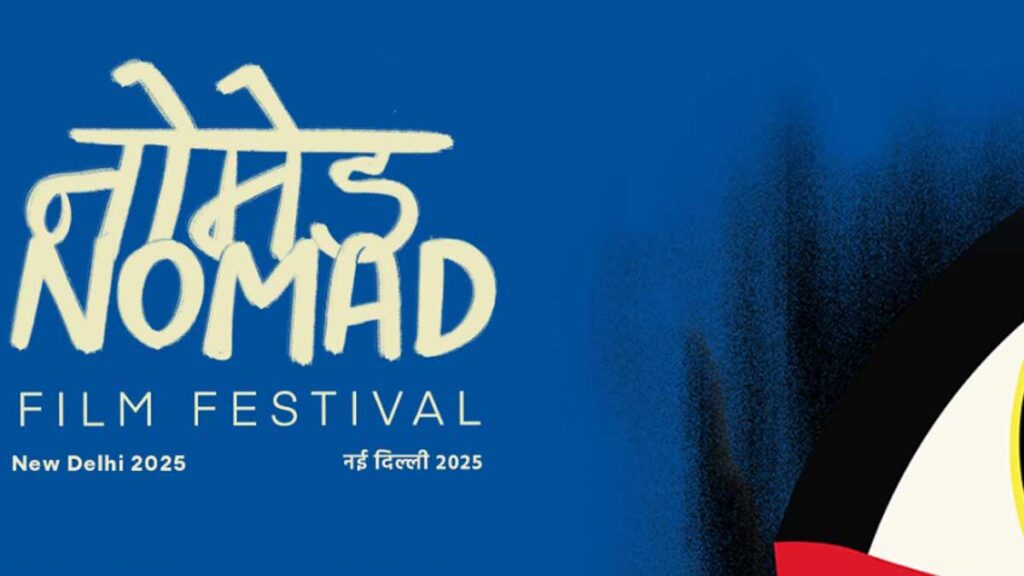Shifting Narratives in Indian Cinema
Popular culture, particularly in Bollywood, tends to focus on grand weddings and fairy-tale romances, often overlooking the rich stories of underrepresented communities. This fixation results in a glaring gap in mainstream Indian cinema, which frequently fails to depict the realities of those on the fringes of society. The COVID-19 pandemic has further amplified these challenges, unveiling stories that demand attention and understanding.
Introducing the Nomad Film Festival
In response to this oversight, the Nomad Film Festival has emerged as a vital platform, shining a light on narratives typically ignored by the mainstream media. Scheduled for March 15 and 16 at Arthsila in Delhi, the festival is dedicated to presenting indigenous voices and artistic expressions through film screenings, workshops, and engaging discussions with filmmakers and community members.
Empowerment Through Film
The festival’s very name reflects its mission to highlight the stories of marginalized communities and denotified tribes. These groups, often isolated from mainstream society, rarely see their experiences translated into film. Dakxin Chhara, associated with the festival, emphasizes that the primary goal is to not only teach community members how to create films but also how to present them effectively and engage with audiences.
Spotlighting Marginalized Voices
One notable film at the festival, “Bahurupi,” directed by Buddha Theatre, illustrates the struggles of the Bahurupi community, traditional performers who once flourished in royal courts. The COVID-19 pandemic has severely impacted their livelihood, forcing many to beg for sustenance as performances were halted and support from authorities fell short.
A Wealth of Untold Stories
Dakxin Chhara points out that India is rich with stories, stating, “We have 140 crore (1.4 billion) stories. Every person on the street has a narrative that deserves to be heard.” Yet, mainstream media often misses these incredibly valuable perspectives. The Nomad Film Festival aims to bridge this gap, ensuring that the climate of storytelling includes the voices of the authentic entertainers, such as the Bahurupi.
Addressing the Invisibility of Indigenous Communities
During the pandemic, marginalized communities like the Bahurupi found little representation in media narratives that dominated the headlines. In response, Buddha Theatre worked to bring these unheard stories to life, effectively capturing the everyday struggles of these groups. However, due to algorithmic barriers, many impactful films struggle to reach mass audiences, highlighting a critical need for dedicated platforms like the Nomad Film Festival.
Changing Narratives and Challenging Stigmas
The festival goes beyond mere storytelling; it actively confronts harmful stereotypes and the unjust criminalization of denotified tribes. By providing a stage for these voices, the Nomad Film Festival is reshaping narratives, amplifying unheard stories, and recognizing cultures that mainstream media frequently neglects. This initiative signifies an essential step toward inclusivity in cinema, fostering a deeper understanding of the diverse societal fabric of India.
Nomad Film Festival: Amplifying Marginalized Voices in Cinema
Exploring the intersection of art and social justice through unique storytelling.
Breaking Away from Mainstream Narratives
In the realm of popular culture, particularly in Bollywood, narratives surrounding opulent weddings and fairy-tale romances dominate the screen. Unfortunately, this focus often overlooks the challenges faced by underrepresented communities. Many stories exist that reflect the gritty realities of those marginalized by society, stories that were often sidelined, especially during the COVID-19 pandemic.
A New Platform for Untold Stories
Recognizing the dire need for alternative narratives, the Nomad Film Festival has emerged as a vital space for the stories that mainstream media tends to ignore. Scheduled for March 15 and 16 at Arthsila, Delhi, the festival aims to elevate indigenous voices through screenings, workshops, and discussions that focus on pressing social and cultural issues affecting marginalized populations.
Celebrating Indigenous Voices
The festival’s name encapsulates its mission to shine a spotlight on marginalized communities and denotified tribes. Filmmakers from these groups often struggle to gain recognition within Indian cinema, making this festival all the more essential for showcasing their unique perspectives and experiences.
Empowering Communities through Film
According to Dakxin Chhara, a key figure in the festival’s organization, the core objective is to empower community members not just in filmmaking but also in presenting their work to an audience. This initiative stems from two years of diligent effort to give marginalized communities a platform to share their narratives and artistry.
Highlighting the Bahurupi Community
One of the featured films, “Bahurupi,” directed by Buddha Theatre, offers a poignant glimpse into the lives of the Bahurupi community—performers who once enjoyed royal patronage but now face societal stigma. The pandemic has exacerbated their struggles, forcing many to beg for sustenance as performances ceased almost overnight due to lockdowns.
Confronting Stereotypes and Invisibility
The Nomad Film Festival’s approach goes beyond mere storytelling. It actively challenges harmful stereotypes associated with marginalized communities, particularly the unjust criminalization of denotified tribes. By providing a platform for these voices, the festival works to reshape narratives and bring to light the stories that mainstream media often overlooks.
Charting a New Course for Indigenous Cinema
Despite the challenges that arise, such as algorithms obscuring these important stories online, the festival plays a vital role in bringing community-driven films to wider audiences. By showcasing works from first-time filmmakers alongside those from established artists, the Nomad Film Festival is helping to dismantle the stereotypes that continue to pervade mainstream cinema.


